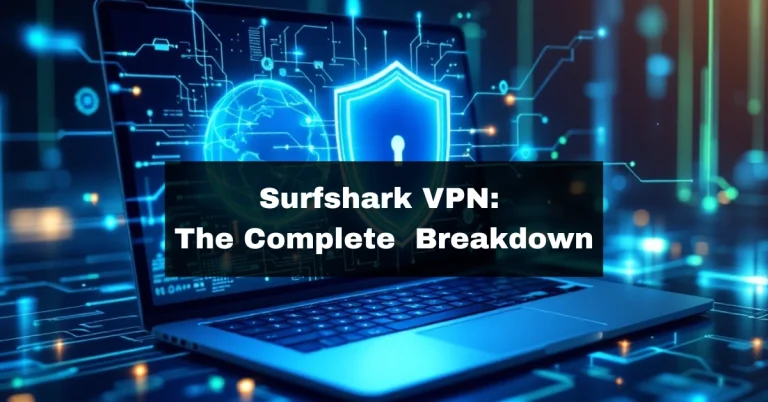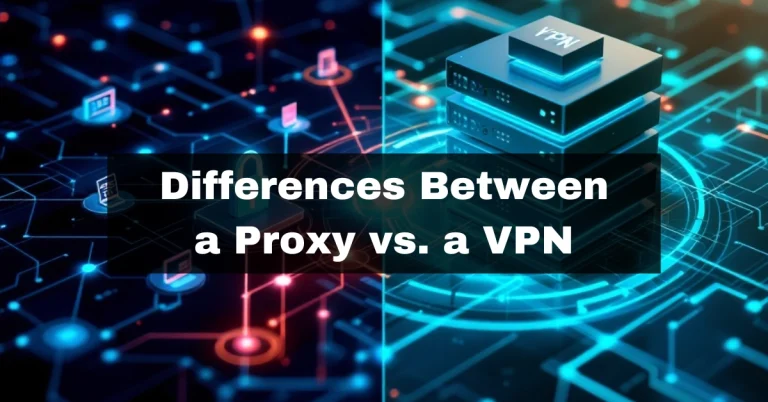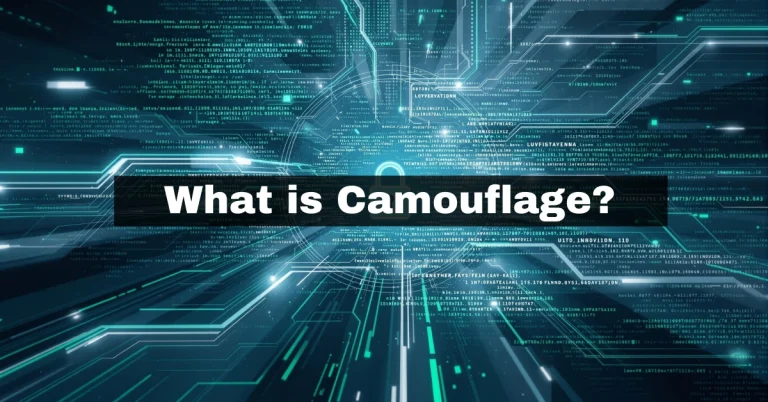Yes, VPNs are generally safe and secure if you use a reputable provider.
They are designed to protect your online data, enhance privacy, and secure your internet connection.

What is a VPN?
What is a VPN? – A VPN, or Virtual Private Network, is a tool that encrypts your internet connection and hides your IP address, making your online activities private and secure.
It creates a protected tunnel between your device and the internet, preventing hackers, internet service providers, and third parties from spying on your data.
Why VPN Security Matters
Understanding how safe and secure a VPN is can help you make smarter choices online. While VPNs protect your privacy, not all are built equally.
A poorly designed VPN or one with shady practices can leak your data, log your activity, or even expose you to malware.
Internet users who value privacy, data protection, and unrestricted access to content must ensure the security of their VPN.
How Secure Are VPNs?
VPNs can be highly secure using strong encryption, reliable protocols, and advanced security features.
However, not all VPNs are created equal, and poor-quality options may leave your data vulnerable.
Encryption Standards
VPNs protect internet traffic using encryption. The most secure VPNs rely on AES-256 encryption, the same standard trusted by banks and governments worldwide.
This encryption method scrambles your data, making it unreadable to anyone who tries to intercept it.
VPN Protocols
The security of a VPN also depends on the protocols it uses to create the encrypted tunnel. Some of the most secure and reliable protocols include:
- OpenVPN: Highly secure, open-source, and widely trusted.
- WireGuard: A newer protocol that offers faster speeds with strong encryption.
- IKEv2/IPSec: Great for mobile devices because it quickly reconnects if the connection drops.
Using a VPN with strong encryption and modern protocols ensures your data stays private and secure.
Killswitch and DNS Leak Protection
A secure VPN should have a killswitch, which automatically disconnects you from the internet if the VPN connection drops.
This prevents your actual IP address from being exposed.
Additionally, DNS leak protection ensures that browsing requests are routed securely through the VPN and not accidentally exposed to your internet service provider (ISP).
How Safe Are VPNs?
VPNs are generally safe if you choose a trustworthy provider, but free or poorly managed VPNs can put your data at risk.
Not all VPNs follow the same safety standards, and understanding their limitations is key to staying protected.
Risks of Unsafe VPNs
- Free VPNs: Free VPNs often make money by logging and selling your data to third parties. While they promise privacy, they can also compromise your safety.
- Malware and Ads: Some unreliable VPNs bundle malware or display intrusive ads, which can put your device at risk.
- Data Leaks: Low-quality VPNs may have security flaws that lead to DNS or IP leaks, exposing your real location and activity.
Here is a Recommended list of The Safest and Most Reliable VPNs we’ve tested.
Audited and Verified VPNs
To ensure safety, choose VPNs that undergo third-party audits.
These audits verify that the VPN provider’s no-logs policy and security practices are legitimate.
Reputable VPNs regularly publish audit reports to prove their claims of safety and reliability.
VPNs Can’t Do Everything
While VPNs protect your internet traffic, they don’t prevent all threats.
VPNs can’t stop phishing attacks, malware, or poor password habits.
Combine VPN use with antivirus software, strong passwords, and two-factor authentication for complete safety.
Do You Really Need a VPN?
Yes, you do need a VPN to protect your privacy, secure your data, or access restricted content.
A VPN can provide essential security and freedom when using the Internet at home, work, or public Wi-Fi.
When You Should Use a VPN
- Protecting Data on Public Wi-Fi
- Public Wi-Fi networks are often unsecured, making it easy for hackers to steal your information. A VPN encrypts your connection, keeping your data safe while browsing in cafes, airports, or hotels.
- Enhancing Privacy at Home or Work
- Internet service providers (ISPs) can track and sell your browsing history. A VPN hides your IP address and encrypts your online activity, ensuring no one can monitor it.
- Bypassing Geo-Restrictions
- VPNs allow you to access content blocked in your country, such as streaming services, websites, or apps. This is useful when traveling or for accessing global content libraries.
- Avoiding Surveillance
- In countries with strict internet censorship, VPNs help users access the open internet while staying anonymous.
When You Might Not Need a VPN
- If you only use trusted websites (HTTPS) and have no concerns about privacy.
- For general browsing at home, where your network is already secured and you’re not accessing sensitive information.
- If you already use strong security tools, like two-factor authentication and antivirus software.
The Verdict!
While not everyone needs a VPN for daily use, it’s essential for anyone concerned about privacy, security, and online freedom.
How to Choose a Safe and Secure VPN
The best way to choose a safe and secure VPN is to look for strong encryption, a no-logs policy, and trustworthy reviews.
Not all VPNs offer the same level of security, so knowing what to look for is key.
Key Factors to Look For
- Strong Encryption and Protocols
- A reliable VPN should use AES-256 encryption and modern protocols like OpenVPN or WireGuard. These ensure your data is encrypted and protected from hackers and surveillance.
- No-Logs Policy
- Choose VPNs with a strict no-logs policy. This means the provider doesn’t store your browsing activity, ensuring your data stays private. Look for VPNs that have been independently audited to verify their claims.
- Advanced Security Features
- Killswitch: Disconnects you from the internet if the VPN drops, preventing accidental data leaks.
- DNS and IP Leak Protection: Ensures your real IP address and browsing activity remain hidden.
- Split Tunneling: Allows you to control which apps use the VPN connection.
- Reputation and Reviews
- Research VPN providers through reviews and customer feedback. Trusted providers often have a strong reputation for transparency and reliability.
- Compatibility and Performance
- A good VPN should work on multiple devices (PC, smartphone, tablet) and offer fast speeds. Slow connections can ruin your browsing or streaming experience.
Avoid Free VPNs
While free VPNs may seem appealing, they often come with risks:
- Data Logging: Free providers may track and sell your data to advertisers.
- Limited Security: Many lack encryption and essential features like a killswitch.
- Malware and Ads: Some free VPNs bundle harmful software or bombard you with ads.
Choosing the Right VPN
If privacy and security are your priorities, invest in a reputable paid VPN.
It will ensure your data stays safe while offering reliable performance and advanced features.
Final Thoughts on VPN Safety and Security
Yes, VPNs are safe and secure when you choose a reputable provider with strong encryption, a no-logs policy, and advanced security features.
A good VPN keeps your data private, protects you on public Wi-Fi, and allows you to browse the internet freely and securely.
However, not all VPNs are equal. Free or poorly managed VPNs can expose your data instead of protecting it.
Understanding the risks and what to look for can help you choose a VPN to keep you safe.
Protect your data, secure your privacy, and take control of your online safety with a trusted VPN.
Affiliate Disclosure: 90SecTech participates in affiliate programs, which means we may earn commissions on purchases made through the links provided. These commissions help us create valuable tech content you can trust.



